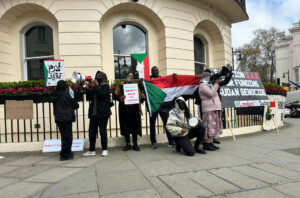524 suspected dengue fever cases in Sudan
According to the Sudanese Ministry of Health, a total of 523 suspected dengue fever cases, including 104 deaths, were reported in Sudan between 29 August (when the outbreak started) and 18 December.
According to the Sudanese Ministry of Health, a total of 523 suspected dengue fever cases, including 104 deaths, were reported in Sudan between 29 August (when the outbreak started) and 18 December.
In its weekly Humanitarian Report, the UN Office for the Coordination of Humanitarian Affairs (OCHA) in Sudan says:
The reduction in the number of cases and deaths is due to the review of all reported cases by the MoH, which led to the exclusion of cases that did not match case definition. The outbreak had initially affected Darfur but has spread to Kassala and Kordofan states. According to the MoH, 53 per cent of all reported cases are male and the age group 5 to 14 years has the highest number of cases (44 per cent).
In Darfur, 473 suspected cases—including 99 deaths—were reported in 27 localities. In Kordofan, 44 suspected cases—including four deaths—were reported in the eight localities of Abyei, Keilak, Babanousa (West Kordofan), Reif Ashargi, Kadugli, Habila, Lagawa (South Kordofan) and Shiekan (North Kordofan). In Kassala state, six suspected cases—including one death—were reported in the state capital Kassala town.
Response
In response, the WHO provided training on water quality testing and integrated vector management to 60 people in South and Central Darfur states. The WHO and the State Ministry of Health (SMoH) conducted health promotion activities in all affected localities reaching 13,600 people.
In Central and West Darfur states, the UN Children’s Agency (Unicef) continued to support health and hygiene promotion activities. Unicef also supported radio discussions on dengue fever reaching about 549,000 people.
In West Darfur, the international NGO Médecins Sans Frontières – Switzerland (MSF-CH) is supporting an isolation ward El Geneina Teaching Hospital and is providing health education and active surveillance within El Geneina locality. The international NGO Save the Children Sweden (SCS) conducted awareness-raising sessions in Habila, Mornie and Kereinik localities reaching 1,560 people. SCS also inspected water containers for mosquito breeding and provided medicine and laboratory reagents to the Kereinik isolation centre.
The International Organization for Immigration (IOM) conducted a training workshop on viral haemorrhagic fever and malaria response in Mornie village, Kereinik locality, targeting 40 people from the community. In North Darfur, the international NGO Relief international (RI) provided education materials on viral haemorrhagic fever to be disseminated in RI clinics in the state. RI also trained 50 community volunteers in how to conduct health education campaigns.











 and then
and then